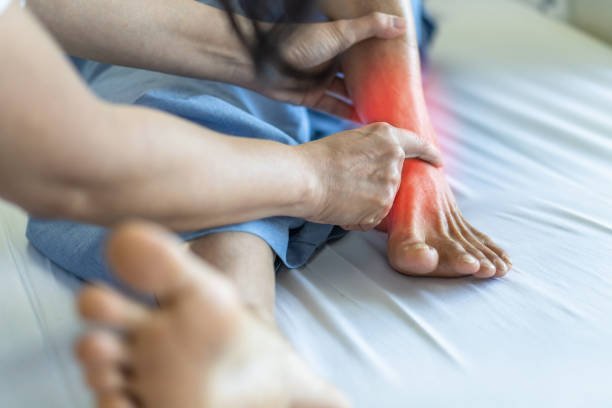Urinary Tract Infections (UTIs) are a common and uncomfortable health issue that affects millions of people worldwide. UTIs can cause pain, burning sensation, and frequent urination, making them a significant inconvenience in daily life. In this article, we will explore the causes, symptoms, and effective treatments for UTI Treatment Highland. We will also delve into preventive measures to reduce the risk of recurring infections.
Understanding UTIs
Urinary Tract Infections occur when bacteria enter the urinary tract, leading to infection in the bladder, urethra, or kidneys. The most common cause of UTIs is the bacterium Escherichia coli (E. coli), found in the digestive system. However, other bacteria and even fungi can also cause infections.
In the Highland region, UTIs are prevalent due to factors such as climate, lifestyle, and diet. The Highland’s cold weather and potential dehydration can contribute to UTI occurrences.
Identifying UTI Symptoms
Recognizing the symptoms of UTIs is crucial for timely treatment. Common signs include a strong and persistent urge to urinate, a burning sensation during urination, cloudy or bloody urine, and pelvic pain or discomfort. In severe cases, UTIs can cause fever and chills, indicating possible kidney involvement.
If you experience these symptoms, it’s essential to consult a healthcare professional promptly to avoid complications.
Seeking Professional Help
When UTI symptoms arise, it’s vital to seek professional help. A healthcare provider will conduct a thorough examination and may request a urine sample for analysis. The results will determine the appropriate course of treatment.
Conventional UTI Treatments
Antibiotics are the standard treatment for UTIs caused by bacterial infections. These medications help eliminate the bacteria responsible for the infection and provide relief from symptoms. It’s essential to take the full course of prescribed antibiotics to ensure complete eradication of the infection.
However, antibiotics may have side effects, such as digestive issues, and their overuse can contribute to antibiotic resistance.
Natural Remedies for UTIs
In addition to conventional treatments, natural remedies can complement UTI management. Cranberry juice is often cited as a potential UTI remedy due to its ability to prevent bacteria from adhering to the urinary tract. Probiotics can also promote a healthy balance of gut and urinary tract flora, reducing the risk of UTIs.
UTI Prevention Strategies
Preventing UTIs is key to maintaining urinary health. Staying hydrated helps flush bacteria out of the urinary tract. Good hygiene practices, such as wiping from front to back after using the bathroom, also reduce the risk of bacterial transfer to the urethra.
Lifestyle Modifications
Diet plays a role in UTI prevention. Consuming foods rich in vitamin C and antioxidants can support the immune system and urinary health. Avoiding irritants like caffeine, alcohol, and spicy foods may also help reduce the risk of UTIs.
UTIs in Women vs. Men
Women are more prone to UTIs due to their shorter urethra, which allows bacteria to reach the bladder more easily. Men can also get UTIs, but they are less common. Recurring UTIs may require further investigation to address underlying causes.
UTIs in Children
UTIs can occur in children, and it’s essential to recognize the signs, such as bedwetting, foul-smelling urine, or unexplained irritability. Treating UTIs promptly in pediatric patients is crucial to prevent complications.
The Elderly and UTIs
In older adults, UTIs can be more severe and lead to serious complications, such as kidney infections. Prompt diagnosis and proper management are crucial in geriatric care.
UTI and Pregnancy
Pregnant women are at an increased risk of UTIs due to hormonal changes and pressure on the bladder. Safe and effective treatments are available for UTIs during pregnancy to protect both the mother and the baby.
UTI and Antibiotic Resistance
Antibiotic resistance is a concerning global issue, and UTIs are no exception. Overusing antibiotics can lead to resistant strains of bacteria, making infections harder to treat. Exploring alternative treatments and preventive measures is vital to combat antibiotic resistance.
When UTI Becomes a Chronic Issue
Interstitial Cystitis, also known as painful bladder syndrome, is a chronic condition that mimics UTI symptoms. Seeking specialized care is essential for accurate diagnosis and management.
Promising Research and Future Solutions
Researchers are continuously exploring new treatments and prevention strategies for UTIs. From novel medications to potential vaccines, promising advancements are on the horizon.
Conclusion
UTIs can be a distressing experience, but by understanding the causes, symptoms, and effective treatments, you can take charge of your urinary health. Remember to seek medical attention promptly if you suspect a UTI and follow the prescribed treatment plan diligently.
FAQs
- Can UTIs go away on their own?
- While some UTIs may resolve without treatment, it’s essential to consult a healthcare professional for proper diagnosis and management.
- Is it safe to use natural remedies for UTIs?
- Natural remedies can be beneficial, but they should not replace medical treatment. Consult your doctor before using them.
- Can men get UTIs?
- Yes, although less common, men can also get UTIs. The risk increases with age.
- Are cranberry supplements as effective as cranberry juice?
- Cranberry supplements can offer similar benefits to cranberry juice but may vary in potency. Follow the manufacturer’s instructions.
- Can I prevent UTIs with lifestyle changes alone?
- While lifestyle changes can reduce the risk of UTIs, they may not guarantee complete prevention. Consult your healthcare provider for personalized advice.
Remember, taking care of your urinary health is essential for overall well-being. Empower yourself with knowledge and proactive measures to lead a UTI-free life.



